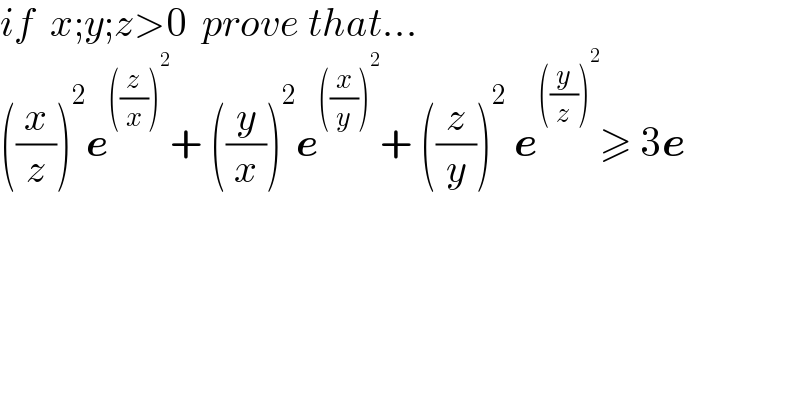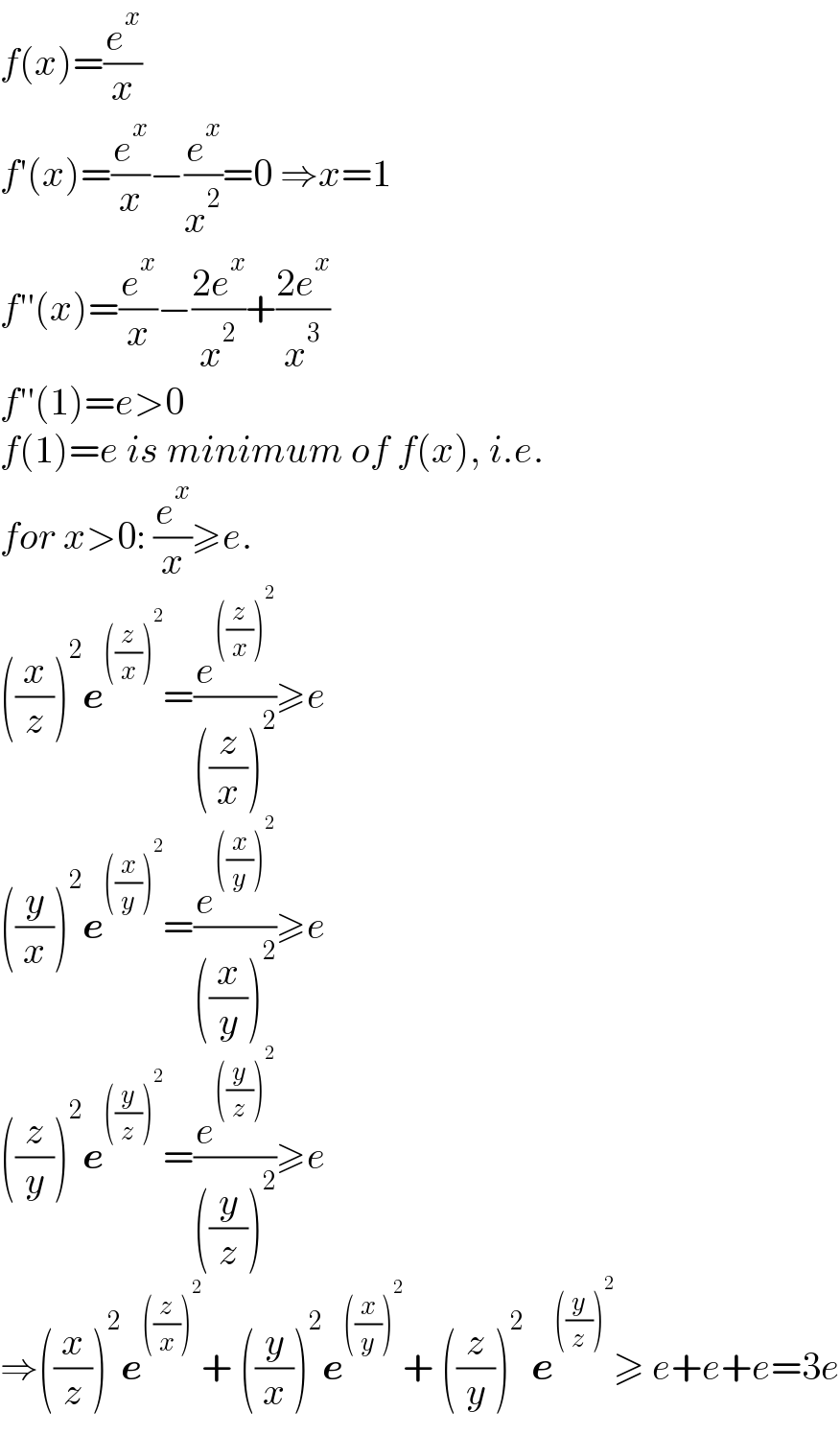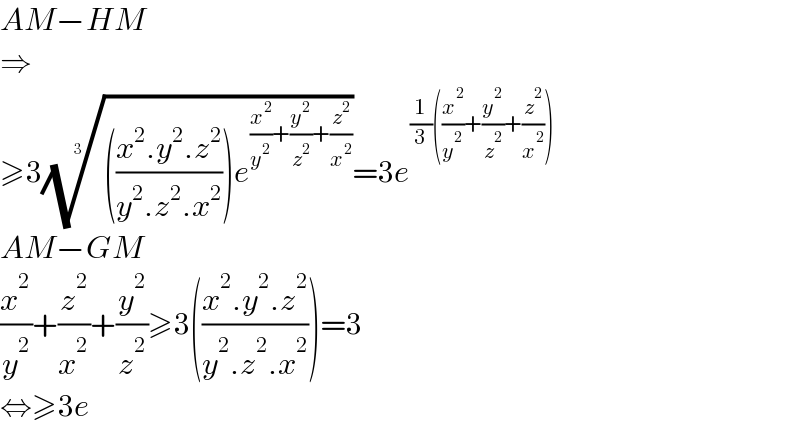
Question and Answers Forum
Question Number 143410 by mathdanisur last updated on 14/Jun/21

Commented bymr W last updated on 14/Jun/21

Commented bymathdanisur last updated on 14/Jun/21

Commented bymr W last updated on 14/Jun/21

Commented bymathdanisur last updated on 14/Jun/21

Answered by SEIJacob last updated on 14/Jun/21

Answered by mindispower last updated on 14/Jun/21

Commented bymathdanisur last updated on 14/Jun/21

